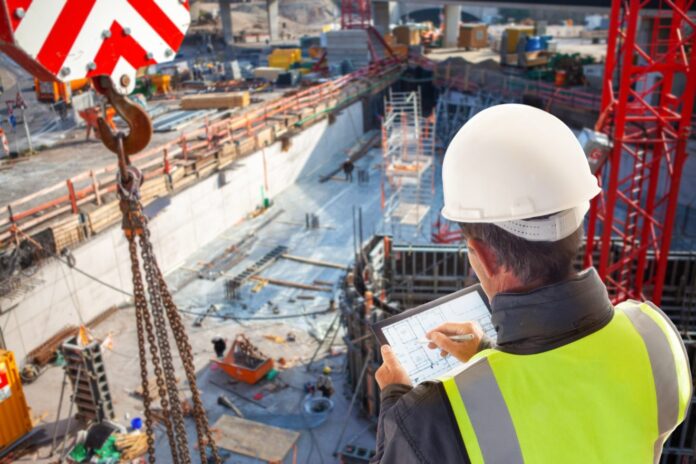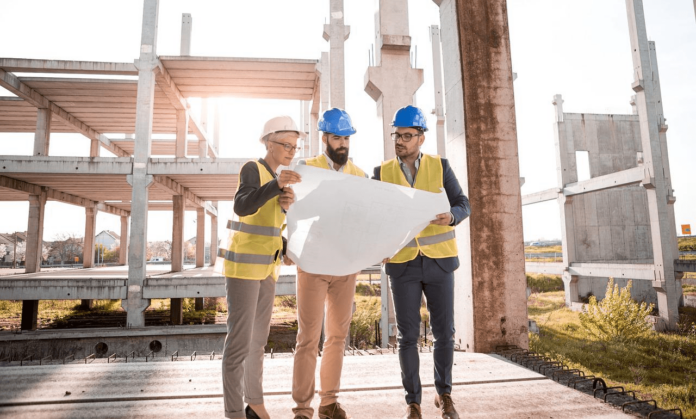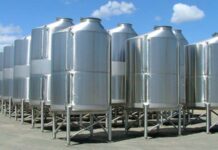In a 2020 survey, 82% of the respondents said their organization has one or more project managers. Many of these companies belong to the construction industry, where project managers are a must-have for any job site.
When scouring through construction job titles and descriptions, you’ll notice that project managers have to do quite a lot of work. They work with laborers, contractors, clients, engineers, architects, and financiers.
So, it’s an all-rounded job that requires certain skills and qualities. But how do you put these skills to use? Let’s look at the role of project managers in the construction industry.
Roles and responsibilities of project managers in the construction industry
Construction project managers have roles pertaining to internal and external stakeholders. Here are some common roles project managers fulfill.

Being the point of contact
Think of the construction project manager as the center of the whole through which the spokes radiate. If the center isn’t stable, the whole feel falls apart.
The construction project manager is the central point of contact for all stakeholders, including clients and contractors. Stakeholders communicate through the project manager for all minor and major tasks.
An example of this role is a construction project manager on a residential job site. The project manager communicates the property owner’s demands to the designers and architects to make the home’s plan and layout. They also work with contractors and subcontractors to ensure timely job completion.
Obtaining design evaluations and permits
A construction project may need permits from the local government. The project manager obtains these permits.
Then, they work with architects and designers to ensure the building’s plan meets the local zoning guidelines and codes.
A project manager working on a residential job site may need local building permits for fire protection, signage, plumbing, electrical, HVAC, and general construction. They may also need DNR permitting for shoreline construction, demolition, and stormwater management.
Managing labor
Labor management is the most well-known role of a construction project manager. Here are aspects of this responsibility:
- Planning and scheduling – The project manager needs to identify how much labor will be required. Then, they allocate the right amount of labor to each construction process or phase. They also need to ensure workers have the required skills and credentials.
- Training – If the labor requires additional skills, the project manager has to provide them with skill training and ongoing development. They also need to arrange safety training opportunities.
- Recruitment – The project manager works with the human resource department to hire the labor required for each project.
- Resource management – Labor resources include safety equipment, tools, and materials. The project manager is responsible for ensuring all workers have the resources to do their job efficiently.
- Communication – The project manager is the labor’s eyes and ears into what happens in client and contractor meetings. They communicate the project’s objectives and plans to the labor to ensure alignment with the construction plan.
On a commercial job site, a project manager has to recruit workers, train them, manage their performance, monitor their attendance, and ensure resource management.

Monitoring project budget
With 98% of megaprojects going over budget, monitoring project budget becomes one of the most pressing responsibilities of construction project managers.
Construction project managers have to track project finances, including accounts payable/receivable and the general pledged. They also process change orders and determine if the cost has exceeded the initial estimates.
A construction project manager on a government-contracted infrastructure project has to ensure the project doesn’t go over budget. They may have to negotiate with suppliers, subcontractors, and vendors to keep the costs down.
Managing materials and equipment
Initially, project managers develop a project plan, which includes:
- The list of materials and equipment needed in different steps of the construction process
- The quantity of these materials required
- When will they be required
After that, construction project managers identify reliable suppliers. They also negotiate prices and perform their due diligence to ensure they can trust the vendor for timely delivery and high-quality materials.
The project manager must maintain accurate inventory records once the materials and equipment arrive on the construction site. They monitor material usage and waste to keep track of new order requirements.
A project manager orders 100 cubic meters of cement and 200 pieces of steel rebars. They must find the best value for money, ensure the material is delivered on time, and monitor its usage/waste on the job site.
Managing contractors and subcontractors
Just like laborers, project managers also have to find the best contractors and subcontractors for the job. Some contractors and subcontractors they need to arrange include:
- General contractor
- Architect
- Civil engineer
- Structural engineer
- Electrician
- Plumber
- HVAC technician
- Carpenter
- Mason
- Painter
- Roofer
- Landscaper
- Surveyor
A project manager working on a hotel construction site has to find a general contractor. They also have to recruit and manage people for carpentry, electrical work, tiling, floor installation, etc.

The work environment of a construction project manager
Construction project managers work in field offices on construction sites. They do their administrative tasks in their office but also have to go to the construction site to monitor and communicate with employees.
Due to construction’s unpredictable and emergent nature, project managers are often required to be on call throughout the day. They also have to work overtime to meet deadlines.
While most worksites are outdoors, some may be indoors too. These are often dirty, dangerous, hot, and loud. Project managers could be exposed to harmful chemicals like sealers and strippers.
They must wear personal protective equipment for site inspections, including a hard hat and safety goggles. In some cases, they may need to travel domestically.
Conclusion
Some major responsibilities of a construction project manager are project planning, cost estimation, material and equipment management, workforce reciting, labor scheduling, and communication.
Construction project managers must have proper education, skills, certifications, and experience to fulfill these roles properly. They also have to keep up with emerging technology and trends in the construction industry.









